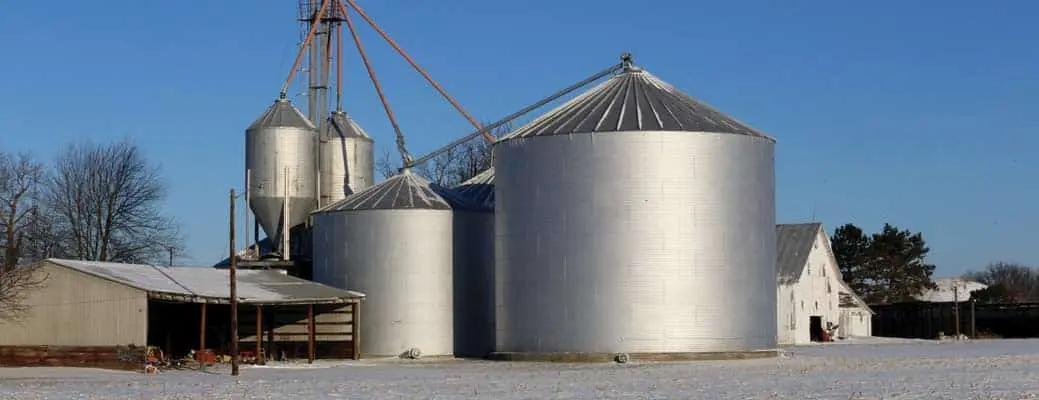The Pros and Cons of On-farm Crop Storage


As a farm and business owner, you are consistently faced with decisions for your operation from purchasing insurance coverages to deciding when to buy new equipment or more farmland. Deciding whether to store grain in on-farm crop storage isn’t always an easy decision. There are several factors to consider: Do you have existing storage space? Are grain prices expected to increase? Do you have land and resources to build new storage bins or facilities? To help you decide if on-farm crop storage is right for your operation, we outline several pros and cons.
Knowing when to sell and when to hold on to your grain isn’t always a simple choice. If the grain markets are predicted to increase later in the year (post-harvest season), it can be tempting to want to store the grain and hope for a higher price. By storing your grain, you gain flexibility on when and where to sell your grain.
The grain price waiting game is stressful and not for the faint of heart. If you take on the risk of waiting to sell your grain, the prices may not increase or could even drop. And by waiting for the markets, you may not be paying down current debt as quickly and incur more in interest.
When you choose on-farm crop storage, you can immediately unload the harvested grain and store it right away –saving you valuable time hauling it to the elevator or to another storage location.
On-farm crop storage comes at a price. If you don’t currently have grain bins or storage facilities on-site, the major cost will be the initial investment to build the infrastructure and prepare the site with wiring, fans, concrete and augers. You will also need to factor in the cost of insurance, increased property taxes and upkeep. If you already have storage bins on your farmland, you are responsible for the electricity for running the bins, maintenance, repairs and more. If you choose to rent grain bins, you won’t have to come up with the up-front costs of building or maintaining the bins, but you will pay monthly or annual rent to use the bins.
Storing grain on the farm allows you a more convenient option for feeding your livestock all year long.
In the future, if you no longer need to store grain, you’ll be left with the expense of the bins without much use for them.
No matter what you choose, our Farm Bureau agents are available to help ensure your operation is protected against the unexpected. A local agent can protect your farm with everything from property coverage to crop to livestock insurance and more.
And if you are working in and around grain bins, be sure to follow grain bin safety tips at all times.